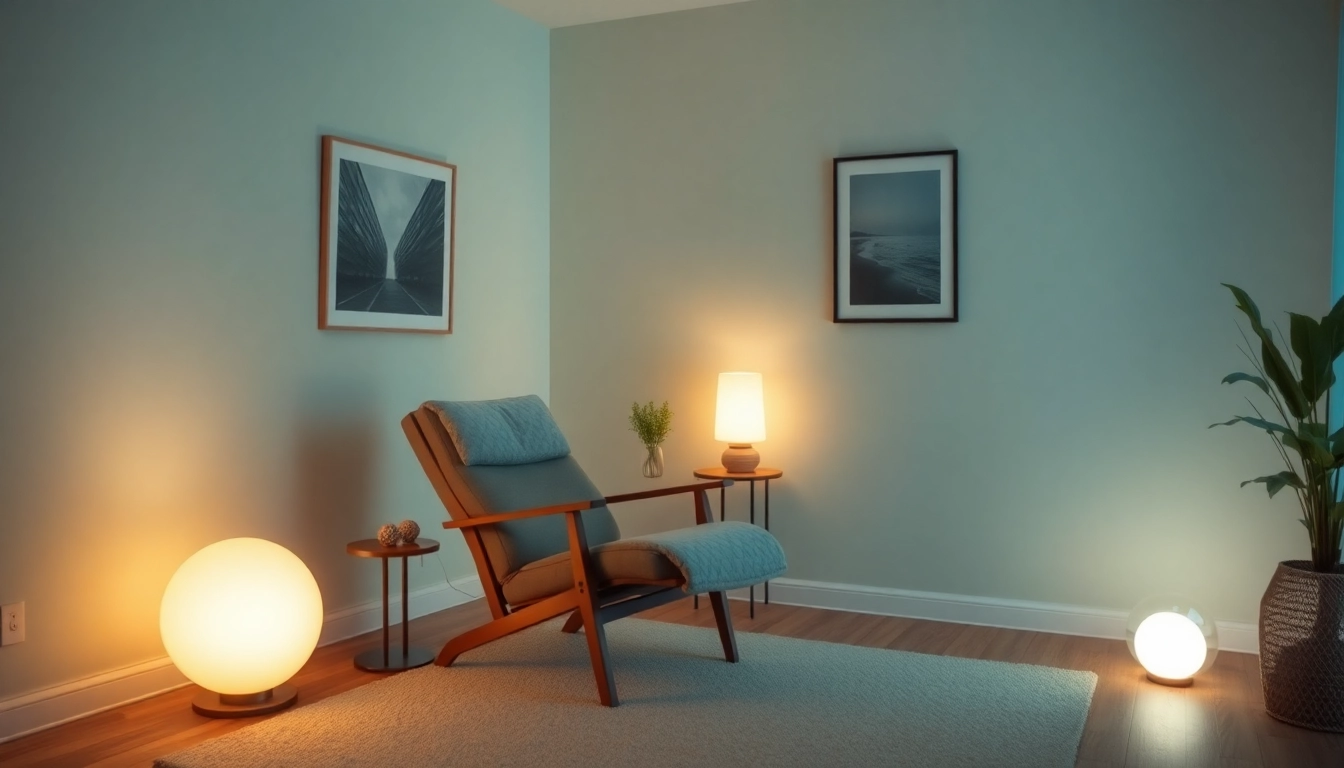
Understanding Anxiety and Its Impact
What is Anxiety?
Anxiety is a natural response to stress, characterized by feelings of worry, fear, or apprehension. While everyone experiences anxiety at times, such as before a public speaking event or during an important exam, some individuals may find their anxiety to be persistent and overwhelming. In clinical terms, anxiety disorders are a group of mental health conditions that include generalized anxiety disorder (GAD), panic disorder, social anxiety disorder, and specific phobias, among others. These disorders can significantly disrupt daily functioning and quality of life.
Common Symptoms of Anxiety Disorders
Symptoms of anxiety disorders can manifest both psychologically and physically. Common psychological symptoms include persistent nervousness, restlessness, difficulty concentrating, and excessive worry about various aspects of life. Physically, individuals may experience increased heart rate, sweating, trembling, fatigue, and gastrointestinal issues. These symptoms can vary in intensity and duration, often leading to a cycle of heightened anxiety and further physical distress.
How Anxiety Affects Daily Life
The impact of anxiety on daily life can be profound. Individuals may avoid social situations, struggle to perform at work, or find it difficult to engage in leisure activities they once enjoyed. The pervasive nature of anxiety can lead to isolation, depression, and a decline in overall mental health. Understanding the effects of anxiety is crucial for those seeking effective solutions, including therapies such as hypnotherapy for anxiety.
What is Hypnotherapy?
Definition and Origins of Hypnotherapy
Hypnotherapy is a therapeutic practice that employs hypnosis, a state of focused attention and heightened suggestibility, to facilitate positive change in thoughts, behaviors, and emotions. The origins of hypnotherapy can be traced back to ancient civilizations, where it was used for healing and ceremonial purposes. In the 19th century, it gained recognition in the medical field, thanks to figures like Franz Mesmer and later, James Braid, who formalized its practice. Today, hypnotherapy is utilized as a complementary approach for various psychological and physical conditions, including anxiety.
How Hypnotherapy Works for Anxiety
During hypnotherapy sessions, a trained therapist guides the individual into a deeply relaxed state, allowing them to access their subconscious mind. This state of heightened relaxation can facilitate openness to positive suggestions, enabling the individual to reframe their perceptions and responses to anxiety-inducing situations. Hypnotherapy helps individuals process anxiety-related thoughts and emotions in a controlled environment, leading to significant emotional release and behavioral changes.
Common Myths About Hypnotherapy
Despite its benefits, hypnotherapy is often surrounded by misconceptions. Many people believe that it involves mind control or that individuals can be made to disclose secrets against their will. In reality, clients undergoing hypnotherapy maintain control over their actions and can reject any suggestions they find inappropriate. Another common myth is that hypnotherapy is only effective for entertainment or show purposes; however, extensive research has shown its efficacy in treating various psychological issues, particularly anxiety.
Benefits of Hypnotherapy for Anxiety
Short-Term Relief from Anxiety Symptoms
One of the primary benefits of hypnotherapy is its ability to provide immediate relief from anxiety symptoms. Through techniques involving deep relaxation and guided imagery, clients can experience a significant reduction in feelings of tension and panic during sessions. This immediate effect can equip individuals with the tools needed to manage acute anxiety situations in their daily lives, enhancing overall emotional resilience.
Long-Term Transformation and Coping Strategies
Beyond immediate relief, hypnotherapy aims for long-term transformation by addressing the root causes of anxiety. By exploring past experiences and ingrained beliefs during hypnotic states, clients can reframe negative thought patterns and develop healthier coping strategies. Hypnotherapy often fosters self-esteem and empowerment, encouraging individuals to face stressors with renewed confidence and adaptability.
Real-Life Success Stories
Numerous success stories illustrate the transformative power of hypnotherapy in treating anxiety disorders. For example, a participant in a hypnotherapy program for social anxiety reported marked improvements in confidence and reduced feelings of dread when engaging in social interactions. Another individual who had struggled with generalized anxiety disorder found peace through targeted hypnosis sessions focused on relaxation and self-acceptance. These narratives highlight the varied applications of hypnotherapy, demonstrating that personalized approaches yield meaningful results.
Techniques Used in Hypnotherapy for Anxiety
Relaxation Techniques and Induction Methods
Effective hypnotherapy begins with relaxation techniques designed to establish a conducive environment for hypnosis. Common methods include progressive muscle relaxation, deep breathing exercises, and visualization strategies to calm the mind and body. Induction techniques, such as guided imagery and rhythmic speech patterns, help individuals transition into a hypnotic state, setting the stage for therapeutic suggestions that can significantly alleviate anxiety symptoms.
Suggestion Therapy for Anxiety Management
Once an individual is in a relaxed state, therapists utilize suggestion therapy to rewire thinking patterns associated with anxiety. Suggestions may include affirmations of calmness, capacity to cope, and visualizations of positive outcomes in anxiety-provoking situations. This approach encourages clients to internalize positive beliefs, enabling them to react more adaptively in moments of heightened anxiety. Furthermore, tailored suggestions can directly target specific fears and habits, leading to profound behavioral improvements.
Post-Hypnosis Strategies for Lasting Change
The effectiveness of hypnotherapy extends beyond the session itself. Practitioners often equip clients with practical post-hypnosis strategies, such as self-hypnosis techniques, mindfulness practices, and journaling exercises. These strategies help reinforce the insights gained during therapy and encourage individuals to maintain a proactive approach to their mental health. Many clients report feeling empowered to embrace ongoing self-care practices as a result of these tools.
Getting Started with Hypnotherapy
How to Find a Qualified Hypnotherapist
Choosing the right hypnotherapist is crucial for achieving meaningful results. Individuals seeking hypnotherapy for anxiety should look for certified professionals who specialize in anxiety disorders. It’s essential to verify their credentials, read reviews, and possibly schedule an initial consultation to assess compatibility. A qualified hypnotherapist will demonstrate an understanding of anxiety and possess a compassionate approach tailored to individual needs.
Preparing for Your First Session
What to Expect from Hypnotherapy Sessions
During hypnotherapy sessions, clients can expect a collaborative experience where the therapist guides them through relaxation techniques, followed by the delivery of tailored suggestions. The duration of sessions may vary, usually lasting from 60 to 90 minutes. Individuals might initially feel a sense of skepticism, but many report a deep state of relaxation and heightened awareness during hypnosis. It’s important to note that results may vary, and multiple sessions may be necessary to achieve optimal outcomes.






